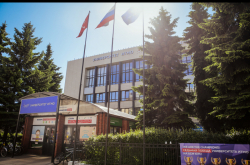When compiling a complex evaluation of universities’ and colleges’ online resources, four varied criteria (indicators) are taken into account, each with its specific weight coefficient. This year saw no changes in the ranking’s methodology. The Presence indicator represents the number of pages on the institution’s main web-domain that are indexed by Google, and has a weight of 5%. The Openness indicator (10%) reflects the institution’s number of citations in academic publications, while the Excellence indicator (35%) measures the citation index of the institution’s publications based on data from SCImagoLab. The most influential indicator, Visibility (link mass), still has a weight of 50%.
This year’s Webometrics Ranking of Universities has ITMO University rising in the global ranking while remaining in its position among the Russian universities.
Six months after last June’s ranking, ITMO University shows positive dynamics in two of the four indicators. Its Impact value has grown by 113 points (total of 706), and Openness – by 256 (total of 591). Its Excellence indicator remains the same (1146). The least influential indicator – Presence – has dropped by 138 points. This change, however, was expected, as the university had previously “cleaned up” its web resources and modernized them, trading quantity for quality.
These changes have led to an improvement in ITMO’s standing on the global ranking: the university moved up by 48 positions, placing 783rd. In the BRICS Ranking, it rose to the 100th place by moving up 19 positions.
Overall, while the previous ranking showed a downward trend among Russian universities, this trend has now been reversed. There are 10 Russian universities in the global top-1000, as opposed to 8 in the June 2017 ranking. Besides ITMO University, these are the Moscow State University (placed 235), Novosibirsk State University (491), St. Petersburg State University (494), the Higher School of Economics (700), MEPhI (779), MIPT (836), Tomsk State University (850), St. Petersburg Polytechnic University (853) and Kazan Federal University (977).
Webometrics university rankings are published since 2004 and are known as one of the most reputable global academic rankings. Its methodology is based on assessment of universities’ representation in the global infosphere and provides an indirect indication of the universities’ academic and scientific achievements. The Webometrics project’s goal is to assist universities in publicizing their scientific achievements and presenting them to a wider audience.




